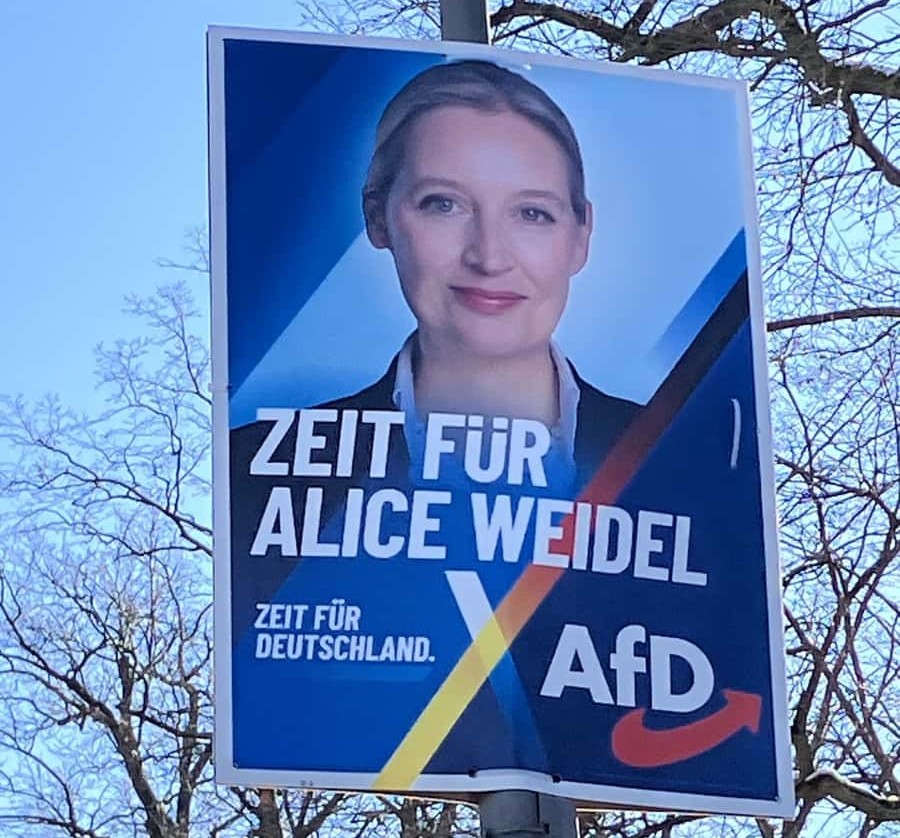
After three and a half years of economic stagnation, rising prices, and political infighting, outgoing Chancellor Olaf Sholz’s tenure atop the German government ended with a whimper. Leaving office with a 20% approval rating, Sholz presided over the worst electoral result in his party’s history, as the Social Democrats (SPD) cratered to just 16% of the national popular vote. However, the SPD’s traditional rivals benefited little from this electoral collapse. The conservative alliance between the Christian Democratic Union and Bavaria’s Christian Social Union, known collectively as the CDU/CSU, recorded their second worst performance ever — improving by only 4.4 percentage points from their own nadir in 2021. Instead, parties of the far right and far left have profited most from Germans’ dissatisfaction with the status quo. As a result, the new governing coalition of the CDU/CSU and SPD will face even greater difficulties in addressing the political and economic crises that have whittled away their public support.
Germans have reason to be unhappy with their government. Supply shocks from the Covid-19 pandemic and Russia’s invasion of Ukraine drove inflation to its highest levels since the reunification of West and East Germany in 1990. The national economy has been in recession, registering negative growth for two straight years, as Europe’s premier manufacturing nation has struggled to keep up with competitors. Meanwhile, the federal government has failed to turn the tide, as Olaf Sholz’s three-party governing coalition was beset with infighting regarding public spending and climate action.
The new governing coalition of the CDU/CSU and SPD will face even greater difficulties in addressing the political and economic crises that have whittled away their public support.
The electoral surge of the far-right Alternative for Germany party (Alternative für Deutschland, or AfD) has dominated news coverage of the elections, but the AfD are not the only party to have benefitted from the rising tide of anti-establishment sentiment in Germany. The Left (Die Linke), a left-wing populist party, nearly doubled its vote share from 2021, rising from 4.9 to 8.8% of the national vote. The Sahra Wagenknecht Alliance (Bündnis Sahra Wagenknecht, or BSW), a breakaway party from The Left that combines socialist economic policy with conservative stances on immigration and social issues, earned just under 5% of the national vote. Together, these anti-establishment parties expanded their vote share from 15.3% in 2021 to nearly 35% this year.
The success of these anti-establishment parties was not the result of political apathy. In fact, 82.5% of eligible voters turned out for this year’s German election: a record high since reunification. This benefitted the three insurgent parties, which performed particularly well with young and first-time voters. The AfD won over 2 million votes among those who did not turn out in 2021 – more than double what the CDU/CSU, who finished first overall, could muster. The Left won a plurality among 18 to 24-year-olds, winning a quarter of all voters in this age group. The AfD came a close second with 21%. With the BSW pulling 6% among this cohort, more than half of all young voters cast their ballot for one of Germany’s anti-establishment parties.
Together, these anti-establishment parties expanded their vote share from 15.3% in 2021 to nearly 35% this year.
The popularity of the far-right AfD is particularly troubling. The party’s second-place finish marks the first time in Germany’s postwar history that a party other than the SPD and CDU/CSU has finished in the top two. The AfD is among the most extreme of Europe’s major far-right parties. Party officials allegedly held secret meetings with neo-Nazi activists in 2023 to discuss plans for the mass deportation of migrants and “non-assimilated” German citizens. The party was pushed out of the far-right Identity and Democracy group in the European Parliament after an AfD official said he would “never say that anyone who wore an SS uniform was automatically a criminal,” referring to the Nazi Party’s paramilitary organization. Undeterred, AfD members frequently chant “Alice für Deutschland!” at party gatherings, a play on the first name of AfD leader Alice Weidel and the slogan Alles für Deutschland, officially banned in Germany for its associations with Nazism. The AfD has already set its sights on making Weidel chancellor after the next elections in 2029.
In the meantime, Germany’s weakened political establishment is tasked with rejuvenating the national economy – a job made more difficult by the rise of populist parties on the right and left. The country needs investment to kick-start economic growth, which will require modifying the constitutional “debt brake” which limits annual deficit spending to 0.35% of GDP. Any reform to this rule will require a supermajority in parliament, necessitating the support of either the AfD or The Left. The AfD is opposed to modifying the debt brake; The Left supports reform, but will extract a price for its cooperation if it is willing to work with the establishment. Without decisive action to boost economic growth, Germany’s mainstream parties can expect to continue hemorrhaging support.
Will Gunter ‘25 studies in the College of Arts & Sciences. He can be reached at email@wustl.edu.